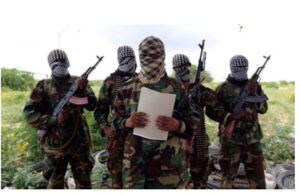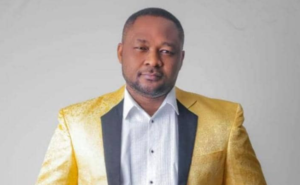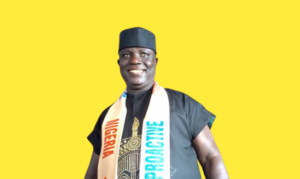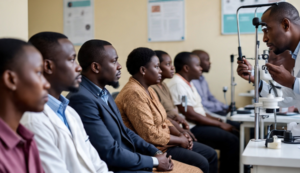What Nigeria Can Learn From Brazilian Democracy and Education (1). By Dr Charles Duruoha.
4 min read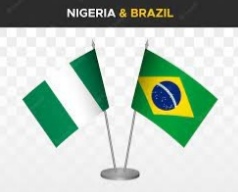
Brazil is a democracy with a presidential and federal system of government. Its current constitution provides strong protections for civil liberties. It also guarantees many rights including to employment, childcare and healthcare. There is an independent judiciary, media and central bank and the country has seen a peaceful transition to power since it became a democracy in 1985 following decades of military dictatorship. However, Brazil’s democracy has been challenged by increasingly polarized politics, a weak central state and the erosion of trust in the ruling class. Successive governments have struggled to maintain law and order in all Brazil’s vast territories particularly parts of the Amazon and in the Favelas (the vast slums surrounding some Brazilian cities). In some cases, police and security services lack a consistent presence in those areas, ceding control to illegal groups and undermining faith in the strength of the democratic state.

Brazil’s democracy, like that of the United States, is imperfect. Both countries grapple with representing a vast population with competing priorities, and both are plagued with many of the same invisible hands that shape elections behind the curtain—dark money, corporate interests, and intentionally fake or misleading news, to name a few. However, Brazilian elections feature unique elements to address issues inherent to democracy that are distinct from features of the American electoral system.
In 2000, Brazil became the first country in the world to conduct an election entirely via electronic voting (e-voting). All Brazilian voters use the same machine, known as an electronic voting machine (urna eletrônica), to cast their vote. The voting machines are designed to be easy to use for everyone, including the disabled and the illiterate. Voters first identify themselves via photo ID or fingerprint, then input a candidate’s number (widely publicized in ads, flyers, and other campaign material), at which point the candidate’s name, party, and photo appear on the screen.
Brazilian elections are heavily regulated by the Superior Electoral Court (TSE), a federal agency that oversees all aspects of elections, from campaign finance to the distribution of voting machines across the country. Campaign regulation in Brazil differs greatly from the hands-off approach in the United States.
In Education System, it is important to understand that education has a broader and vaster meaning than teaching, and that the Brazilian educational system take on one of the dimensions of education that is school education. However, we defend liberating education in accordance with the ideas of Paulo Freire, since it can promote the development of new knowledge that enhances the exercise of citizenship in the school space without losing sight of what the constitution professes […] “school education constitutes the right of everyone and the duty of the State and of the family”.
In the Brazilian Educational System, there are two levels of education – basic and higher – based on the National Education Guidelines and Bases Law No. 9394/96, and on the current principles of the 1988 Constitution. Basic education complies with three stages: early childhood and elementary education, as well as high school. The states are responsible for high school education, municipalities for early childhood education, and elementary education is the responsibility of both organized in a collaborative way. The Federal Government will give priority to higher education, although it has obligations with elementary education, since it constitutes a subjective public right. In regard to the teaching modalities provided by Law, they give visibility to groups considered minorities, but do not vouch the population historically disregarded in the definition of educational policies and management of educational systems and educational institutions. Actions and investments articulated between the federated entities are required. We consider that the creation processes for the Licentiate course in Pedagogy – agreement Brazil-Japan – reveal an understanding that official policies are not developed exclusively by the State. The subjects placed in the context of the practice (parents, teachers, students, community), despite being placed in territories far from their respective nations, act on educational policies, in a perspective of promoting multiculturalism that does not operate in one-way funding.Brazil also has undergraduate (bachelor’s) degrees are known as bacharelado and take between three and six years to complete. Aspiring teachers can take a licentiate degree (licenciatura), which takes three to four years to complete, while technology degrees (tecnologia) offer highly specialized professional courses such as tourism management or agribusiness and take between two and three years. Although the licentiate degree has a focus on education and allows the degree holder to teach their chosen subject, the core courses taught are so similar to a bachelor’s degree that the option to undertake a licentiateship or a bachelor’s degree can be made towards the end of the course. Technology degrees, meanwhile, are comparable to the US Community college or associate’s degree.
Quality assurance is an integral part of Brazilian higher education, with postgraduate programs assessed every two years. Programs with low scores are closely monitored by CAPES (Coordenação de Aperfeiçoamento de Pessoal de Nível Superior), the Brazilian Federal Agency for the Support and Evaluation of Graduate Education. There are Project grants, financial aid. Scholarships and studentship for graduate programs.A total of 17 Brazilian universities are ranked among the top 100 BRICS universities, and the 11 top universities in Brazil are all within the BRICS top 50. With stiff competition from four countries that have all been investing heavily in developing their higher education systems, it seems Brazil is succeeding in holding its own.
Charles Okechukwu Duruoha, P.hD, P.E. lives in Brazil.

